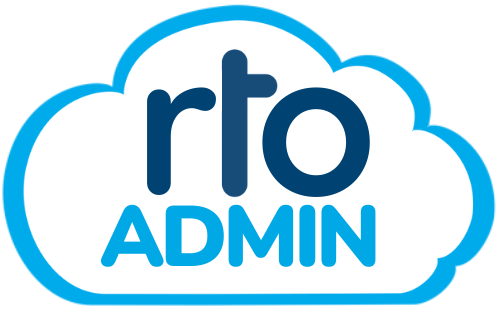Have you ever considered the advantages of pursuing your education through a Registered Training Organisation (RTO)? In the evolving landscape of vocational education and training (VET), RTOs have emerged as a cornerstone, ensuring students acquire industry-relevant skills and knowledge. Understanding the significant role they play can profoundly impact your career trajectory.
RTO Definition
Registered Training Organisations (RTOs) are educational institutions that provide and assess nationally recognised training in Australia. They cater to various industries by offering vocational qualifications designed to equip you with practical skills and competencies. This makes RTOs an excellent choice for those looking to gain hands-on experience in their chosen field.
Registration and Standards
RTOs operate under stringent regulations to ensure the highest education quality. The Australian Skills Quality Authority (ASQA) oversees the registration of these organisations. To become an RTO, an institution must comply with the standards set by the Australian Quality Training Framework 2019 (AQTF 2019). This compliance assures you that the training provided meets national benchmarks for excellence and relevance.
Scope and Renewal
An RTO must define the scope of its training offerings and regularly renew its registration, typically every five years. During this process, RTOs can be audited at any time to ensure continuous compliance with the set standards. This ongoing assessment guarantees that the training you receive is always up-to-date and meets the industry’s current needs.
Auditing and Continuous Improvement
The auditing process is essential for maintaining the integrity of RTOs. Regular audits focus on various aspects, including course content, delivery methods, and student outcomes. This rigorous scrutiny fosters a culture of continuous improvement within the organisation, benefiting you as a student through enhanced learning experiences.
Benefits of Studying with RTOs
Accredited Qualifications
One of the primary benefits of studying with an RTO is the receipt of accredited qualifications. RTOs offer nationally recognised certifications, ensuring that your skills and knowledge are acknowledged across the country. This recognition can significantly boost your employability and career prospects.
Industry-Relevant Training
RTOs collaborate closely with industry partners to develop their training programs. This collaboration ensures that the curriculum is aligned with current industry standards and practices. As a result, you are equipped with the exact skills needed in the marketplace, making you job-ready upon graduation.
Flexibility and Convenience
RTOs offer various study methods, including in-class, online, blended, and virtual learning environments. This flexibility allows you to choose a mode of study that best fits your lifestyle and commitments. Whether you are a working professional or someone looking to transition into a new career, RTOs provide the convenience you need to balance your studies with other responsibilities.
Qualification Levels
RTOs offer a wide range of qualifications, from entry-level certificates to advanced diplomas. These qualifications are designed to cater to different stages of your career, whether you are entering the workforce for the first time or looking to enhance your existing skills.
Certificate I-IV
Certificates I-IV serve as foundational qualifications that introduce you to various fields. These certifications focus on basic industry skills and knowledge, providing a robust starting point for your career.
Diploma and Advanced Diploma
Diplomas and Advanced Diplomas build on the knowledge gained at the certificate levels. These programs delve deeper into the technical and managerial aspects of an industry, preparing you for more advanced roles.
Vocational Graduate Certificate and Diploma
Vocational Graduate Certificates and Diplomas are designed for individuals seeking to specialise further in their chosen field. These qualifications often serve as an alternative to traditional university degrees, offering vocationally oriented education at a graduate level.
Types of RTOs
RTOs come in various forms, each offering unique advantages and specialising in different areas of education and training.
| Type of RTO | Characteristics |
|---|---|
| TAFE Colleges | Publicly funded, offer a broad range of courses across many industries. |
| Private Providers | Often specialise in specific fields and offer tailored programs. |
| Community Organizations | Focus on community-based education and training. |
| Schools | Provide vocational training as part of secondary education. |
| Higher Education Institutions | Offer vocational courses alongside academic degrees. |
| Industry Bodies | Provide industry-specific training developed in close collaboration with the sector. |
TAFE Colleges
TAFE (Technical and Further Education) colleges are publicly funded institutions offering diverse courses across multiple disciplines. They are renowned for their comprehensive programs and extensive resources, making them an excellent choice for students seeking a broad education.
Private Providers
Private RTOs often specialise in particular industries or niches, offering tailored programs that meet the specific needs of their students. These providers can offer more personalised instruction and often have strong ties to industry employers.
Community Organizations
Community-based RTOs focus on delivering education and training within the local context. They are ideal for individuals looking to gain skills that benefit their immediate community or engage in lifelong learning.
Schools and Higher Education Institutions
Some schools and universities include RTOs as part of their structure, offering vocational qualifications alongside traditional academic programs. This combination allows students to gain practical skills while pursuing conventional education paths.
Industry Bodies
RTOs operated by industry bodies provide training programs developed in close collaboration with the sector. These programs ensure that the skills and knowledge imparted are directly applicable to the industry’s current demands, enhancing your job readiness.
Regulatory Body
The Australian Skills Quality Authority (ASQA) is the principal regulatory body for RTOs in most Australian states and territories. ASQA’s role is to ensure that RTOs comply with the highest standards of vocational education and training. This regulation extends to courses offered to international students, ensuring a consistent education quality irrespective of the student’s background.
Course Offerings
RTOs provide an extensive range of courses, enabling you to choose a program that aligns with your career aspirations. Whether you’re interested in accounting, animal care, arts and design, business, community services, education, engineering, health, IT, or another field, RTOs likely have a course to suit your needs.
Variety of Fields
The diversity of courses offered by RTOs covers almost every industry sector. This breadth ensures that you can find a program that matches your interests and career goals. Below is a non-exhaustive list of fields in which RTOs offer courses:
| Field | Example Courses |
|---|---|
| Accounting | Bookkeeping, Financial Services |
| Animal Care | Animal Studies, Veterinary Nursing |
| Arts and Design | Graphic Design, Fashion Design |
| Business | Business Administration, Management |
| Community Services | Child Care, Aged Care, Disability Support |
| Education | Teacher Assistant, Early Childhood Education |
| Engineering | Civil Engineering, Mechanical Engineering |
| Health | Nursing, Allied Health Assistance |
| IT | Information Technology, Cybersecurity |
Providers and Methods
RTOs offer courses through various providers and study methods to accommodate diverse learning preferences and life situations. You can choose to study in a classroom, online, or through blended or virtual environments, depending on your needs and lifestyle.
In-Class Learning
In-class learning provides a traditional face-to-face educational experience. This method is ideal if you prefer direct interaction with instructors and peers, hands-on activities, and structured schedules.
Online Learning
Online learning offers the convenience of studying from anywhere at your own pace. This method is suitable if you need flexibility to balance your studies with work or other commitments.
Blended Learning
Blended learning combines in-class instruction with online coursework, offering the best of both worlds. It provides the structure of classroom learning along with the flexibility of online study, making it a popular choice among students.
Virtual Learning
Virtual learning environments simulate traditional classroom settings through online platforms. This method often includes live lectures, interactive sessions, and real-time discussions, providing a comprehensive learning experience from a remote location.
National Database
All RTOs are listed in the National Training Information Service (NTIS) database. This database serves as a central repository of information on RTOs, including the courses they offer and their accreditation status.
Accessing the NTIS Database
The NTIS database is an invaluable resource for prospective students, providing detailed information about registered training organisations. You can search for RTOs based on various criteria, such as the type of course or location, helping you make an informed decision about your education.
Benefits of the NTIS Database
The centralisation of this information ensures transparency and accessibility. As a student, you can verify the credentials of an RTO and ascertain the quality of the training programs offered. This verification process protects you from enrolling in substandard or unaccredited programs, ensuring your time and investment are well spent.
Conclusion
Studying with Registered Training Organisations (RTOs) offers numerous benefits, including accredited qualifications, industry-relevant training, and flexible study options. These institutions are rigorously regulated to ensure they provide high-quality education that meets national standards. By understanding the advantages of RTOs, the variety of qualifications and courses offered, and the regulatory framework within which they operate, you can make an informed choice that aligns with your career goals and learning preferences.
Investing in education through an RTO can be a pivotal step in advancing your career, providing you with the skills and knowledge required to succeed in today’s competitive job market. Whether you are starting out in your career, looking to upskill, or seeking a career change, RTOs offer a pathway to achieving your professional aspirations.




